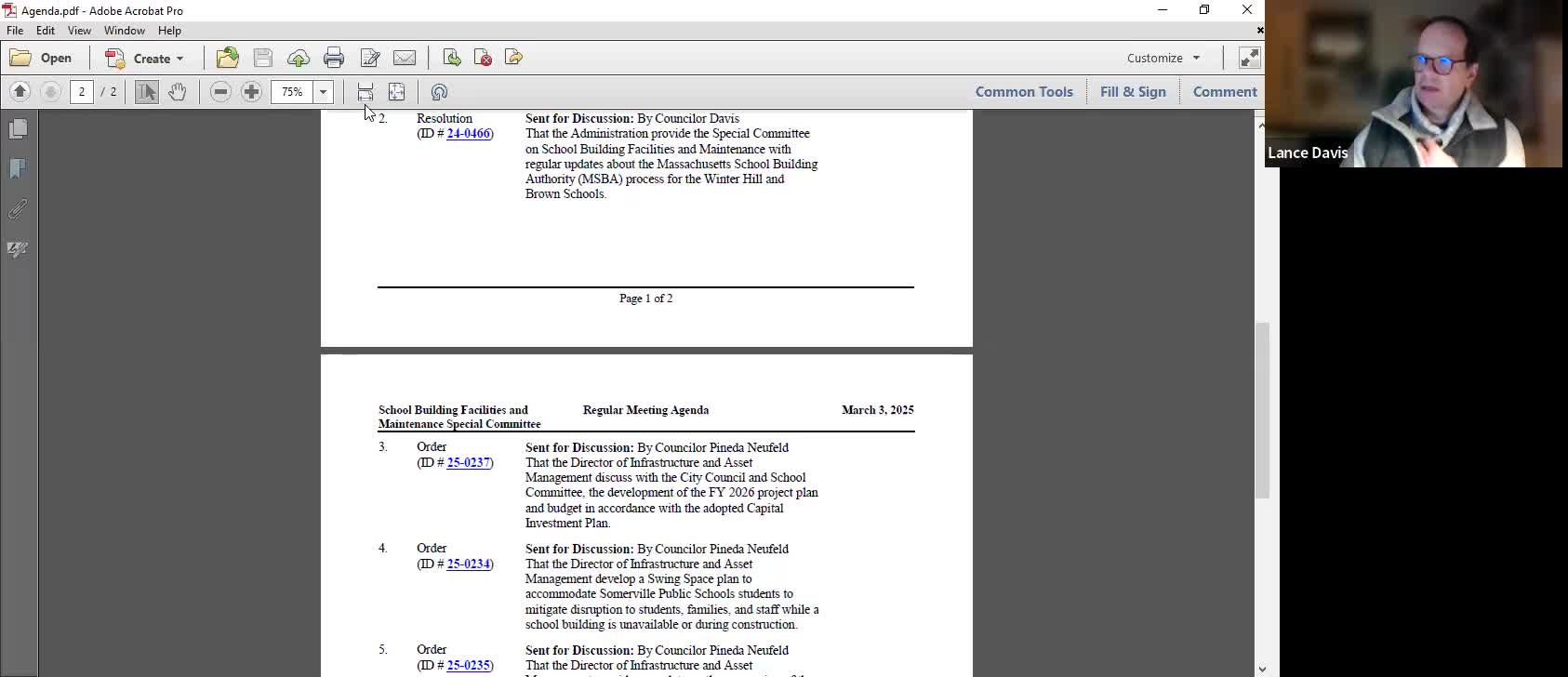City says FY26 capital plan will be lean after $30M judgment and slower revenue growth
Get AI-powered insights, summaries, and transcripts
Subscribe
Summary
The director of infrastructure and asset management told the joint committee that lower revenue projections and a roughly $30 million liability tied to a 90 Washington judgment mean Somerville will publish a constrained FY26 capital investment plan and prioritize high-risk school needs.
Somerville officials told the joint City Council–School Committee meeting that the city’s upcoming fiscal year 2026 capital investment plan will be smaller than previously projected after reduced revenue growth and a court judgment tied to the 90 Washington parcel increased near-term liabilities by about $30 million.
Director Raich said Finance Director Bean briefed councilors on the city’s lower growth numbers and that a “disappointing judgment on the 90 Washington parcel…has added roughly $30,000,000 to our liabilities,” forcing staff to model a “short-term lean CIP” while the city waits for improved projections or a way to divest from the property.
Why it matters: the constrained plan will force staff and elected officials to triage capital needs across schools, roads and other municipal priorities. Raich said his office is running multiple scenarios to determine what can be afforded and that school-related priorities are being coordinated more closely than in prior years.
Raich told the joint committee that staff have been meeting with Somerville Public Schools leadership, including Dr. Carmona and chief of staff Anna Soke, and have walked every school with principals to identify medium-term needs. Those priorities — examples include roof replacements and HVAC systems at several schools — will be reflected in scenario planning for the FY26 CIP.
Committee members asked for more transparency about the criteria used to prioritize projects in the CIP. Raich said prioritization is multivariate and includes program impact, risk of building-system failure (for example, roofs and chillers), and the financial and programmatic consequences of disruption. He cited roof work at the Healy and West schools as high-risk, high-impact items and said the chiller and boiler replacements are also urgent but could be mitigated with temporary solutions.
Members asked the administration to prepare a memorandum summarizing how projects were weighted and prioritized so elected officials and the public can see why some projects are targeted for FY26 while others are scheduled for later years. Raich said work was underway to update the capital projects web page and to produce building-specific evaluation reports coming for affected schools.
